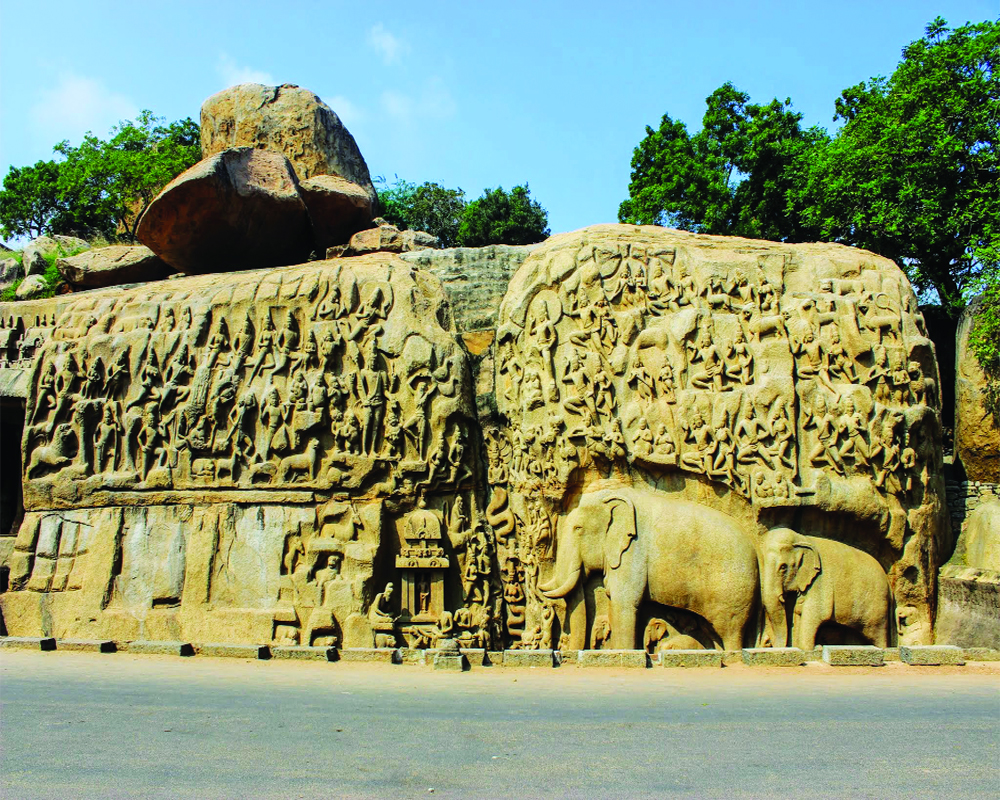If we want real integration, North Indians must study the history and literature of South India, too, right from school
All Indians, including those from the South, have read about the great Mauryan Empire, the Gupta Empire, the Empire of Harshavardhan, the Mughal Empire, and so on in their school history books. But, how many North Indians have heard of Krishnadeva Raya of the Vijayanagara Empire (whose statue along with his two queens, still stands in the Tirupati temple), or of the great Chola and Pandya kings? Regrettably, very few North Indians would be aware of these great kings from the South. Most Indians have read the ‘Ramayan’ and the ‘Mahabharata’, which are epics about North Indian kings, and most Indians have read the works of Surdas, Tulsidas, Kabir, and the stories of Munshi Premchand. But how many North Indians have read the great Tamil epics ‘Silappathikaram’, ‘Manimekalai’, or the great Tamil treatise ‘Tirukkural’ by Tiruvalluvar, about whom the great Tamil poet Subramania Bharati wrote: “Tamil Nadu is known throughout the world because of Tirukkural.” How many have heard the ‘Tiruppavai’ by the poet saint Andal, which is sung in the month of January all over Tamil Nadu, or the great poetry of Subramania Bharati who wrote powerful verses for women’s emancipation around 1910 much before anyone dared to do so in the country? Very few.
North Indians know of Hindustani music but how many know of Carnatic music, and its trinity of Tyagaraj, Muthuswami Dikshitar and Shyama Shastri? Hardly any. How many North Indians have heard of the great Keralite social reformer Narayan Guru, who belonged to the low-caste Ezhava community and fearlessly criticised and campaigned against the inhuman caste system? Practically none. For long, North Indians have regarded South India as a dark land populated by uncivilised people and are blissfully unaware of the South’s great achievements in various fields. Indeed in the ‘Ramayan’, Kishkindha, which is believed to be in the present State of Karnataka, was regarded to be a land populated by monkeys from whom Lord Rama raised a ‘vaanar sena (monkey army)’ to invade Sri Lanka. Regrettably, even today, many North Indians look down on South Indians due to their ignorance of the culture and achievements of the South. For instance, South Indian temples are massive and unbelievably beautiful. They reveal the high level of knowledge of architecture and geometry of the ancient and medieval South Indians. For example, the Brihadishvara temple of Tanjore is simply astounding and one wonders how the builders could use such huge stones to create it. In fact, it reminds one of the Egyptian pyramids. The gigantic rock relief ‘Descent of the Ganges’ in the ancient port city of Mahabalipuram, capital of the Pallav Empire, is truly amazing.
The large number of Roman coins found in South India show the extensive trade between it and ancient Rome from the time of Emperor Augustus (who reigned from 27 BC to 14 AD). This indicates how highly developed the economy in ancient and medieval South India was as they, unlike North Indians, were seafaring people, with extensive commercial contacts in Southeast Asia. The Chola king Rajendra Chola is believed to have executed military campaigns in Southeast Asia (Sri Lanka, Sumatra, and so on), which could only have been possible with the aid of a powerful navy. In Ilango’s epic ‘Silappathikaram’ one comes across these lines: “May the Pandya king prosper, who ruled over the South, after conquering the Ganga and the Himalayas in the north.” At first I thought this was only poetic exaggeration, however, later I read of credible accounts of a South Indian king (perhaps Rajendra Chola) leading a Napoleonic invasion of north India up to the Ganga and even beyond (apart from invading Sri Lanka, the Malaya peninsula, southern Thailand and so on.) If we want real integration of India, North Indians must study the history, culture and literature of South India, too, right from school and give the South Indians the respect they deserve.
(The writer is a former judge of the Supreme Court of India. The views expressed are personal.)


























